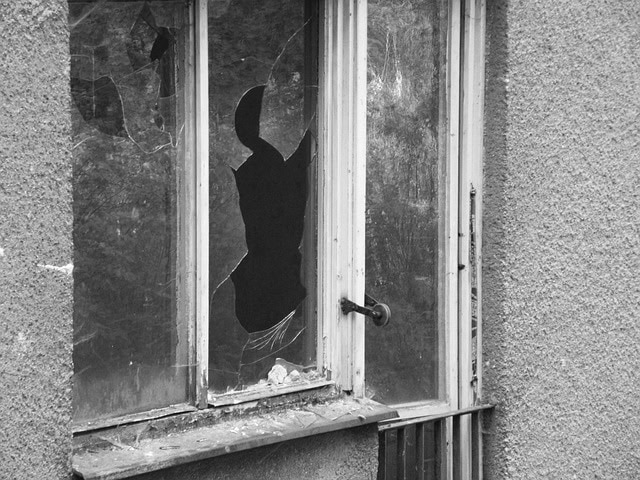At the end of February, the Scottish Government released the findings of the Independent Working Group on Anti-Social Behaviour (ASB), with several of the recommendations related to the issue of housing.
The report highlighted the great variety in approach that different housing providers take in tackling ASB and that there is “a perception that small or individual landlords are not equipped at all to tackle antisocial behaviour from or affecting their tenants.”
Whether that perception is borne out of reality is beyond the scope of this blog but presuming that it is at least partially true, how can small private landlords handle anti-social behaviour confidently and fairly given their limited resources?
Clear processes and consistency of approach would also go some way to ensuring that such variety in approach as highlighted in the report can be avoided in future.
At the end of February, the Scottish Government released the findings of the Independent Working Group on Anti-Social Behaviour (ASB), with several of the recommendations related to the issue of housing.
The report highlighted the great variety in approach that different housing providers take in tackling ASB and that there is “a perception that small or individual landlords are not equipped at all to tackle antisocial behaviour from or affecting their tenants.”
Whether that perception is borne out of reality is beyond the scope of this blog but presuming that it is at least partially true, how can small private landlords handle anti-social behaviour confidently and fairly given their limited resources?
Clear processes and consistency of approach would also go some way to ensuring that such variety in approach as highlighted in the report can be avoided in future.
What Is Considered Anti-Social Behaviour?
ASB is highly subjective and can be very distressing to those experiencing the consequences of the behaviour, however, defining terms is an important first steps in understanding what may have to be actioned.
The Antisocial Behaviour etc (Scotland) Act 2004 defines in the following terms: A person engages in anti-social behaviour if they act in a manner that causes or is likely to cause distress or pursues a course of conduct which causes or is likely to cause alarm or distress to at least one person who is not of the same household.
The key parts of this definition are therefore:
- It can be an act that causes or is likely to cause distress (an individual incident)
- Or can be a course of conduct which cause or is likely to cause alarm or distress (a pattern of behaviour)
- To at least one person who does not live in their household (i.e. neighbour)
Behaviours that can sit within those terms are wide and varied and it is worth noting that they do not have to have caused distress, or alarm, but are likely to. Common anti-social complaints can range from the unintentional, such as living noise, through to excessive noise from music, parties or pets to more serious or potentially criminal behaviour such as threats of violence or harassment.
For landlords, those examples at the upper end of the scale will most likely be dealt with in the first instance or led by a police investigation. For behaviour that does not potentially constitute criminality, landlords will be expected to deal with complaints in the first instance.
Investigating complaint claims can be a time-consuming process. It requires landlords to establish the facts and gather any evidence that corroborates the complaint. Depending on the nature of the complaint, a frank conversation with the tenant may be all that is required to resolve the issue – if for example they did not realise their behaviour was impacting their neighbour.
However, these issues can end up being escalated such that the tenant can ultimately be evicted, so good record keeping and following up all investigations, agreements and actions in writing is essential.
Dealing with ASB can be further complicated if the complainant is suffering from a health condition that exacerbates their behaviours, such as substance dependency or a mental health condition. In these circumstances, it is useful as a landlord to be aware of the community framework that exists in the area around the rental property, where the landlord may be able to seek advice or signpost the tenant to for help.
There are mediation services available and local councils can assist by making applications for anti-social behaviour orders should serious problems persist.
Prevention is better than cure and effective communication and relationship building between the landlord and tenant from the outset is a worthwhile investment, should difficult conversations have to take place. However, landlords should always be mindful of the potential for escalation and risk assess the situation should they decide to visit the property in person.
Early intervention and proactive approaches are key to ensuring ASB is addressed before it has had the chance to worsen or persist and can avoid the need for unnecessary court action and eviction.
ASB is highly subjective and can be very distressing to those experiencing the consequences of the behaviour, however, defining terms is an important first steps in understanding what may have to be actioned.
The Antisocial Behaviour etc (Scotland) Act 2004 defines in the following terms: A person engages in anti-social behaviour if they act in a manner that causes or is likely to cause distress or pursues a course of conduct which causes or is likely to cause alarm or distress to at least one person who is not of the same household.
The key parts of this definition are therefore:
- It can be an act that causes or is likely to cause distress (an individual incident)
- Or can be a course of conduct which cause or is likely to cause alarm or distress (a pattern of behaviour)
- To at least one person who does not live in their household (i.e. neighbour)
Behaviours that can sit within those terms are wide and varied and it is worth noting that they do not have to have caused distress, or alarm, but are likely to. Common anti-social complaints can range from the unintentional, such as living noise, through to excessive noise from music, parties or pets to more serious or potentially criminal behaviour such as threats of violence or harassment.
For landlords, those examples at the upper end of the scale will most likely be dealt with in the first instance or led by a police investigation. For behaviour that does not potentially constitute criminality, landlords will be expected to deal with complaints in the first instance.
Investigating complaint claims can be a time-consuming process. It requires landlords to establish the facts and gather any evidence that corroborates the complaint. Depending on the nature of the complaint, a frank conversation with the tenant may be all that is required to resolve the issue – if for example they did not realise their behaviour was impacting their neighbour.
However, these issues can end up being escalated such that the tenant can ultimately be evicted, so good record keeping and following up all investigations, agreements and actions in writing is essential.
Dealing with ASB can be further complicated if the complainant is suffering from a health condition that exacerbates their behaviours, such as substance dependency or a mental health condition. In these circumstances, it is useful as a landlord to be aware of the community framework that exists in the area around the rental property, where the landlord may be able to seek advice or signpost the tenant to for help.
There are mediation services available and local councils can assist by making applications for anti-social behaviour orders should serious problems persist.
Prevention is better than cure and effective communication and relationship building between the landlord and tenant from the outset is a worthwhile investment, should difficult conversations have to take place. However, landlords should always be mindful of the potential for escalation and risk assess the situation should they decide to visit the property in person.
Early intervention and proactive approaches are key to ensuring ASB is addressed before it has had the chance to worsen or persist and can avoid the need for unnecessary court action and eviction.












